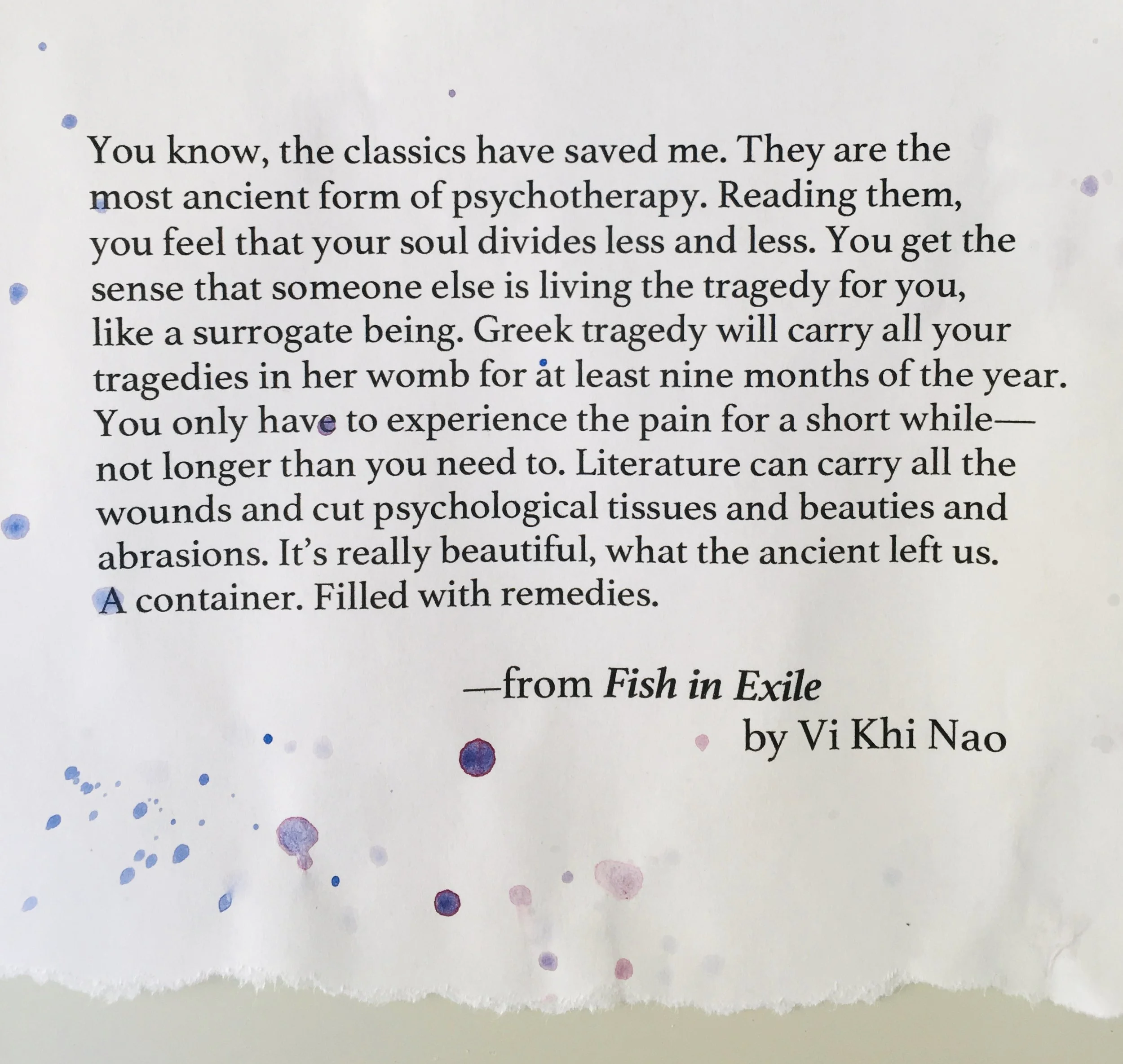I do this: I read multiple books at one time, and I think I always have, or since university at least (and maybe that’s the genesis—reading various textbooks at once). I like the sense of freedom, and juxtaposition, how the books speak to each other, in a way, though it has to be said that in this case, each one is very distinct. It’s possible, too, that COVID is influencing my reading—well, I’m sure it is—or at the very least it forms a background against which the tone of each book is highlighted (for instance, I very specifically turned to Victor Frankl’s Man’s Search for Meaning last week). Since the shut-down, I don’t actually have more time for reading, as the level of care-giving has risen, though it seems imperative, more than ever, to make the time. My initial restlessness and lack of concentration (or rather the concentration on many other things that were deeply important) has begun to be replaced by a desire to think, read and write. So this is my current (not quite finished) reading rotation.
Caitlin Doughty’s From Here to Eternity is a fascinating look at death practices around the globe, and in particular the corporeal aspects, as in what gets done with the body after someone has died (which also leads to the provoking question, in a few of the cultures she examines: does the body left behind in some way have life? I found this very interesting and unexpected, that the question of an afterlife in certain regions involves keeping the physical body in a kind of stasis, protected as much as possible from decay).
I found a used copy of Lewis Hyde’s classic The Gift a while back, long before COVID, and I’m utterly surprised by it, also. For those of you who’ve read it, you already know it’s a book about creativity, but also something more; it is an entirely unusual investigation of creativity. The first part of The Gift is a scholarly examination of gift practices, using the lens of folk and fairy tales, indigenous histories, and mythologies, to illuminate not simply the process of gift-giving or the why, but the energy and mechanics that enliven what passes from one person to another. He uncovers what is almost a set of rules for that energy, or if not rules exactly, tendencies. Hyde is setting up the reader to then understand creativity, which functions as a gift.
Claudia Casper’s The Mercy Journals is a bit of an echo of the times we’re in, as it’s set in a dystopian future (though the cause of the chaos and emotional isolations is environmental, rather than specifically viral). I’m enjoying it immensely (and there is a troubled character who is a contemporary dancer, who I can’t help but like). There is certainly something to be said for reading dystopian books during this particular moment in history.
I had started Olga Tokarczuk’s Drive Your Plow Over the Bones of the Dead and somehow got pulled away from it. The good part of that, I suppose, is the re-discovery. In fact, it’s the sort of book to come back to and write about with some depth, which I think I will do. I loved her book Flights, which won the Booker International Prize (this is a prize for books in translation and each year the long-list is a bonanza of amazing, intelligent reading). Drive Your Plow was likewise nominated. It was published in Polish in 2009, and then translated by Antonia Lloyd-Jones in 2018. I discovered, too, that there is a film adaptation of the book (called Pokot), though it seems unavailable for streaming at the moment; hopefully that will change. At any rate, the novel, which is a murder mystery that doesn’t play to the tropes, has me thinking a lot about the experience of reading layered, meaningful, intensely thoughtful work and how to describe the mystery—not the functional one in the story—that seems to be in the spaces and margins. And how vital that experience of reading work like this seems. The writers I love, and this applies certainly to Tokarczuk, do a lot of combining and drawing on disparate fields of study and thought, and there is the combining, too, of concrete and more nebulous aspects (in this case, death is a literal and recurring event), the lived world and the dream world, or aspects of the real that verge on dreams or something archetypal or mythological in feel. In Drive Your Plow, Tokarczuk folds into the narrative not only the question of who is murdering hunters, but also feminism, animal rights, astrology, the poetry of William Blake and ageism, to name a few of the larger aspects.
I’ve also re-read Victor Frankl’s Man’s Search for Meaning, as many people are at the moment (among his wonderful observations of a time of terror, he touches on the psychology of not knowing when something will end, which speaks, in a small way, to our current situation) and Susan Sontag’s journal, As Consciousness is Harnessed to Flesh (this is a great book to read in the small hours of the night if I happen to wake up, as her entries are already fragmented within a continuous flow of her ideas and the content isn’t the Holocaust or a dystopian world).

